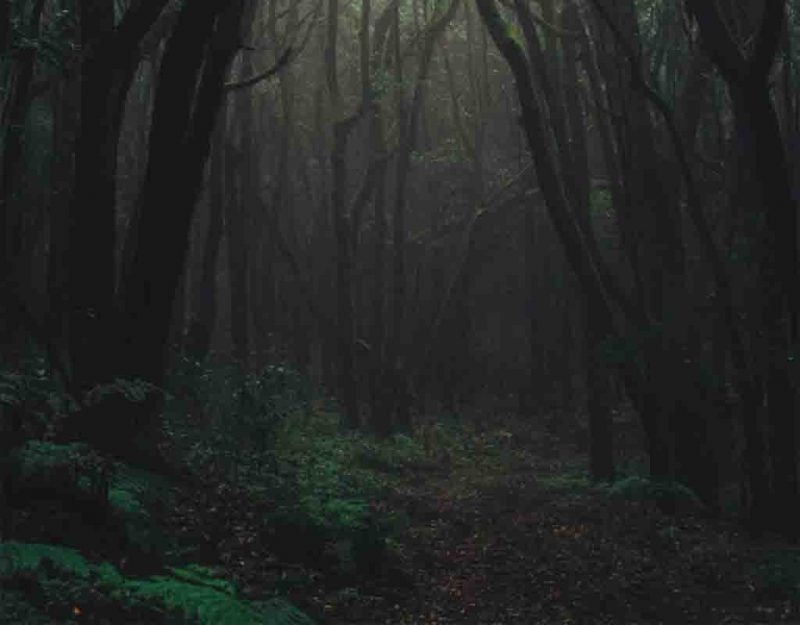What Is The Ferguson Effect?
Americans will debate this for aeons, but the unsettling fact of the past decade is that the Ferguson Effect is real and will continue any time we allow diversity-based efforts to reduce the number of diversity perps by easing up on policing.
This is not our first experience with this. The 1960s Civil Rights movement tried to focus on “rehabilitation” and arresting fewer minority perps, resulting in a crime wave that lasted into the 1990s and brought about the peak of the golden age of serial killing.
Of particularly disturbing note was how many of the people later arrested for truly horrible crimes started out with awful crimes — rape, kidnapping, torture — but were “rehabilitated” by Leftist psychiatrists.
After cops started getting arrested, charged, and convicted with assault and murder for dealing with unruly perps using force, the Ferguson Effect kicked in as cops opted for self-preservation over busting minority perps:
Comey was channeling a theory popular among police officials, beat cops and even big-city mayors like Chicago Democrat Rahm Emanuel who believe the backlash against police brutality, coupled with the ubiquity of smartphone cameras brandished by mistrustful bystanders, has made officers leery of interceding in situations apt to wind up on YouTube. “Officers are extremely cautious right now,” says Sergeant Delroy Burton, chairman of the police union in Washington, D.C., where homicides are up 45% in 2015. “Nobody wants to become the next guy in a viral video on the 6 o’clock news.”
This phenomenon has been dubbed the Ferguson effect, after the St. Louis suburb where protests raged when a white police officer shot and killed an unarmed black man in August 2014. The idea isn’t new. For years, law-enforcement officials have pointed to sporadic bouts of “depolicing,” a related contagion that causes a slowdown in proactive beat work in the face of public recriminations of cops or dwindling department morale. After the 2001 Cincinnati riots, officers avoided confrontations, and homicides climbed.
This created the same two-tiered justice that we saw in Rotherham, namely that minority perps walked while White perps got long sentences. Funny, the same thing is occurring in mainland Europe too, where diversiperps claim ignorance and walk out with parole or counseling.
By the time the dust (and ash) had settled on Ferguson, police inaction had become a matter of self-preservation:
More than three-quarters of U.S. law enforcement officers say they are reluctant to use force when necessary, and nearly as many — 72% — say they or their colleagues are more reluctant to stop and question people who seem suspicious as a result of increased scrutiny of police, according to a new study published Wednesday by the Pew Research Center.
Not shockingly, Ferguson Effect relaxed policing resulted in a crime wave as perps felt immune:
The more-recent study, just published in the Journal of Public Economics by university economists Cheng Cheng and Wei Long, looks at the effect of Brown’s death on police activity and crime on a week-to-week level in St. Louis (which is near Ferguson), and on a month-to-month level in 60 big cities. The St. Louis police department collects high-quality data on self-initiated activity, the authors note, allowing them to assess in specific detail police behavior just before and just after Brown’s death.
Their findings manage somehow to be both unsurprising and shocking. In the immediate aftermath of Brown’s death, self-initiated arrests fell 62 percent. Similar declines are seen across nine out of 11 categories of self-initiated activities, including foot patrol (down 82 percent) and pedestrian checks (76 percent). Notably, the decline in arrests is concentrated among misdemeanor arrests (more discretionary than felonies) and among arrests of blacks (rather than whites). This reduction in police activity persisted for at least the next two years. In the same period, the city experienced a significant rise in homicide and aggravated assault.
A second study, by Deepak Premkumar of the Public Policy Institute of California, compares arrest patterns among police departments in 52 cities that experienced high-profile shooting incidents to 2,688 police departments that did not—and comes to a similar conclusion.
Across the board, where the Ferguson Effect kicked in, violent crime rose:
Analyzing data on 43 large U.S. cities, we find that violent crime was higher and rose more in cities where concern about police violence was greatest. We also find that measures of social inequality predict crime rates.
Pay attention to the last sentence, which is classic “wet streets make rain.” It implies that “inequality” is the cause of higher crime, when in fact low intelligence and mental health issues produce both poverty and crime. Darwin chuckles.
Not only is The Ferguson Effect real, but it lives on every time an Emmett Till, Rodney King, Trayvon Martin, Mike Brown, or George Floyd decides to fight back against the police and the panicked voters demand the cop get locked up.
Policing is many things. It is our high ideals, for sure, but also our panic response. On top of that, it is a job, and if given the choice between enforcing the law and protecting their pensions, families, and salaries, police officers choose the safe option. Screw the voters.
Tags: crime, diversity, ferguson effect, policing










